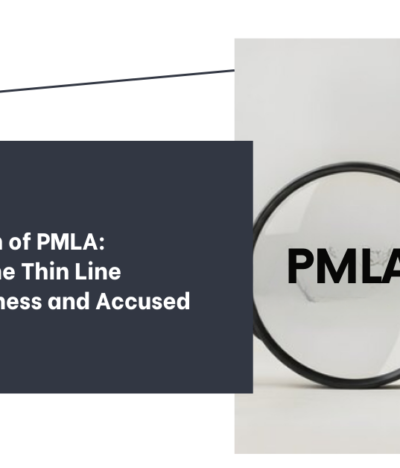Introduction
The President of India, Droupadi Murmu, in a letter dated 13th May 2025 forwarded a list of fourteen questions to the Hon’ble Supreme Court of India, requesting their advice and opinion upon the questions of law. These opinions were sought under Art. 143 of the Constitution of India which empowers the President to seek opinion of the Hon’ble Supreme Court. The questions were raised subsequent to the Hon’ble Supreme Court’s judgement dated 08th April 2025 in the case titled the State of Tamil Nadu vs. the Governor of Tamil Nadu, 2025 INSC 481. These questions appear to have been formulated in such a manner that it basically challenges the ratio decidendi in the case.
Before we dive into the case, it is essential to understand the present legislative framework in state governments. The State legislature comprises of the Legislative Assembly, the Legislative Council, if any and the Governor of the respective State. A bill shall be necessarily assented to by the Governors for their enforcement as law. Under Art. 200 of the Constitution, the Governors have discretionary powers to give assent to the bills or send them back to the Assembly for reconsideration or reserve the bill for consideration of the President. Further, if the Assembly chooses to repass the bill sent to it for reconsideration, the Governors have to compulsorily give assent to the bills.
The State of Tamil Nadu vs. The Governor of Tamil Nadu, 2025 INSC 481
In the instant case, the Government of Tamil Nadu had approached the Hon’ble Supreme Court of India to claim for appropriate reliefs against the Governor of the State, Sh. Thiru. R. N. Ravi for having failed to give assent to the bills passed by the State legislature. The State legislature had forwarded a total of twelve bills to the Governor between 13th January 2020 to 28th April 2023 for his assent under Art. 200 of the Constitution, but the Governor failed to take any action on any of the bills. Upon issuance of notice to the respondents by the Hon’ble Supreme Court, the Governor proceeded to take decisions on all the twelve bills in apparent haste. He reserved two bills for consideration of the President and withheld assent on the other ten bills, returning them to the Assembly. When the State Assembly repassed the ten bills, he chose to reserve them for consideration of the President.
The Hon’ble Supreme Court of India criticised the office of the Governor for misusing the powers under Art. 200 of the Constitution. It held that the Governor cannot withhold its assent to the bill so as to cause the lapse of the bill. If the Governor chooses to withhold assent, it must be mandatorily send it back to the Assembly for reconsideration. Therefore, the bill lapses only when the legislature chooses not to repass the bill sent for reconsideration. The Governor cannot sit on the bill or simply withhold it. Moreover, the Hon’ble Supreme Court has fixed a definitive timeline of one to three months for the Governors to decide whether to give assent to the bill or send it back for reconsideration or reserve it for consideration of the President. If Governor fails to exercise any of the above options within the prescribed timeframe, this inaction would be liable to judicial review.
Therefore, the Hon’ble Supreme Court has upheld the supremacy of the State legislature which is elected by the popular masses. The Court has affirmed that the decision of the legislature is ultimate, and the Governors cannot undermine their independence and powers in legislative businesses.
The Presidential Reference
Now, by raising fourteen specific questions, the President has called into question the foundational premises underlying the judgment of the Apex Court rendered by Justices J.B. Pardiwala and R. Mahadevan. The questions raise contentious issues regarding the powers of the Hon’ble Supreme Court under Art. 142 of the Constitution. It has been asked if Art. 142 can be used to prescribe time limits upon the exercise of power under Art. 200 and Art. 201 of the Constitution when the Constitution itself does not provide such time limits or indicates anything thereof. Request for clarification has also been made regarding the powers of the Hon’ble Supreme Court to substitute the constitutional powers of the Heads, i.e., the President and the Governors, by means of a judicial order. The President has also raised queries regarding the justiciability of exercise of constitutional powers under Art. 200 and 201 of the Constitution.
These questions consequently call into question the fundamental reasoning and judgment of the Hon’ble Supreme Court itself. The reference order demands that the Hon’ble Supreme Court deliberate on its own powers under Art. 142 and the extent of its jurisdiction upon the Heads of the State – the President and the Governors. It appears therefore that the President is pressing the Apex Court to sit in appeal of its own division bench’s decision and that too under a reference order and not through filing of review petitions.
Article 143 of the Constitution of India
The Article provides that:
(1) If at any time it appears to the President that a question of law or fact has arisen, or is likely to arise, which is of such a nature and of such public importance that it is expedient to obtain the opinion of the Supreme Court upon it, he may refer the question to that Court for consideration and the Court may, after such hearing as it thinks fit, report to the President its opinion thereon.
(2) The President may, notwithstanding anything in the proviso to article 131, refer a dispute of the kind mentioned in the [said proviso] to the Supreme Court for opinion and the Supreme Court shall, after such hearing as it thinks fit, report to the President its opinion thereon.
Therefore, the President of India has power to consult the Supreme Court of India and seek their opinion on any important legal or factual question. This can happen if the President thinks the question is very significant and it would be helpful to get the Supreme Court’s view on it. The Supreme Court can hear the matter in the way it finds suitable and give its opinion to the President.
Further, this provision empowers the President to refer those disputes also to the Supreme Court which otherwise would not be decided by the Hon’ble Court according to certain rules, like proviso to Art. 131. Essentially, this process allows the President to seek expert legal advice from the highest court of the country on important questions before taking any action.
Is the Hon’ble Supreme Court of India bound to reply?
Now, the paramount issue at this juncture is whether the Apex Court actually sits in appeal of its decisions when similar points of contention are raised through a reference order under Art. 143 of the Constitution. Under Art. 143, the Supreme Court has advisory jurisdiction to give its opinion to the President on questions of law. However, such exercise of jurisdiction is discretionary upon the Court, i.e., the Supreme Court may or may not give its opinion as it deems fit. In Special Reference No. 1 of 1964, the Hon’ble Court had held that the Court may refuse to give its opinion having regards to the questions and other relevant facts and circumstances. Therefore, the Supreme Court has the power to refuse giving opinion on the present reference.
Further, on the question on maintainability of these kind of reference orders, the Hon’ble Supreme Court of India in Special Reference No. 01 of 2012 has held that a Reference does not become non-maintainable just because it requires the Bench to say something different to what has been enunciated in a case as a proposition of law. Further, the Court may choose not to answer those questions which have already been decided in an earlier judgement.
Effect of Opinion furnished under Art. 143
It has been felt by many scholars and laymen that when the Supreme Court would respond to the questions raised by the President, it would be reviewing the earlier judgement and may overturn it too. However, this is not correct. Opinions furnished under Art. 143 are mere opinions and they do not have any precedential value. They are not appellate decisions but mere answers on questions of law.
Further, in the Ahmedabad St. Xavier’s College Society and Another vs State of Gujarat and Another 1974 (1) SCC 717, the Hon’ble Court held that great weight should be attached to it opinions under Art. 143 because of its persuasive value, however, the said opinion cannot override the opinion subsequently expressed by this Court in contested cases. Moreover, in Cauvery Water Disputes Tribunal, Re, 1993 Supp (1) SCC 96 (2), it was held that the Court cannot sit in appeal of its own decisions under Art. 143 of the Constitution. The Court is not vested with such appellate jurisdiction even under the power of reference conferred by the President of India.
Therefore, the Hon’ble Supreme Court’s power to furnish opinion under Art. 143 of the Constitution does not result in overturning any of its previous decisions. These answers may clarify or provide reasoning for any earlier decision of the Court, but the Article cannot authorise the Court to overrule its decisions. The opinions under Art.143 are not adjudicatory decisions and are therefore not binding on any court under Art. 141 of the Constitution of India.
Conclusion
The Presidential Reference to the Hon’ble Supreme Court marks a watershed moment in India’s constitutional journey. These fourteen questions have instigated profound constitutional dialogue on the delicate balance of power between the executive and the judiciary, particularly concerning the legislative assent process.
The outcome of this reference will undoubtedly have far-reaching implications. It is poised to clarify the constitutional boundaries within which the President and Governors exercise their assent powers, potentially leading to a more defined and predictable legislative process. This constitutional dialogue may also serve as a catalyst for Parliament to consider legislative reforms, codifying clear procedures and timelines for bill assent, thereby reducing the ambiguity that has historically led to such disputes. Ultimately, this episode underscores India’s dynamic constitutional democracy, continually adapting to ensure both effective governance and the preservation of its foundational principles.
Author: Mahima Rathore, Associate






